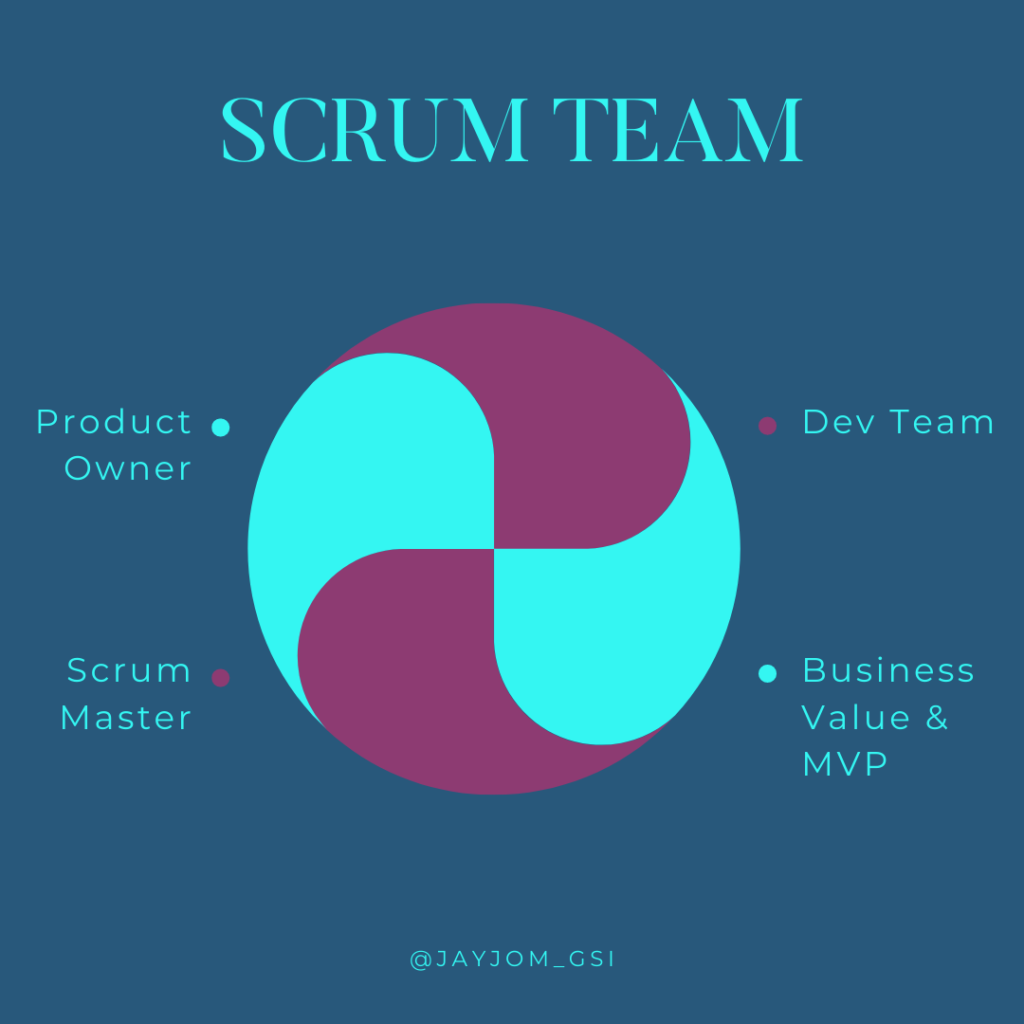Transition to Tech in One Month or Less!
Table of Contents
Get Your Free Guide to Learn Now
WHAT IS A SCRUM MASTER?
The Number 1 Best Guide to Walk you through How to Become a Scrum Master!
Scrum Certification has become a big deal in the tech industry right now and adding it to your CV actually puts you in the lead in a job application or for a role especially when it has something to do with the certification you hold.
Disclaimer: We partner with companies that offer products that help our readers achieve your goals. Any time you purchase through our partner links, we get paid for the referral at no additional cost to you! Read our disclosure for more information
A lot of people are beginning to pick interest in scrum but are confused about what it really entails.
This post is geared towards helping you to understand the basis of Scrum.
So, if your questions are who really is a Scrum Master, what does it entail and how do you make a decision on which certification to get or which certifying body to go with?
You are in the right place. Keep reading and you will soon find out all you need to help you.
What is a Scrum Master?
Scrum is an agile software development process designed to manage software projects based on three simple principles: visible progress, constant inspection, and adaptation.
Scrum uses a framework based on simple guidelines for managing projects.
Within the Scrum team, there are three main roles: The Scrum Master, Product Owner, and Development Team. Today we will be laying emphasis on Scrum Master.
A scrum master can literally be referred to as the brainbox of the whole scrum process team. He oversees all the activities ongoing in the team and draws plans on how to achieve the best result for a particular project.
The service of a scrum master is actually divided between two main groups; the product owner – the one who represents the customers & stakeholders’ interest and the development team


Scrum Master’s Responsibilities
A day to day life of a scrum master has the following as normal routine which are the primary reasons keeping him in the position as the master of the team:
1. Daily morning scrum with the development team and Product owner: The scrum master conducts meetings on the daily basis to identify any problem that may hinder that day’s set goals from been achieved or delay in getting the work started.
2. Identification of impediments: Due to an all round involvement of a scrum master in every activity that is taking place in the team, s/he is able to identify anything that may want to prevent developers from working the anticipated sprint.
3. Schedule meetings with stakeholders to remove roadblocks and impediments for the team: A scrum master organizes meetings with the product owner to clear anything that may prevent sprint goals from being achieved.

4. Shielding of the team from outside distractions: The scrum master protects his team members from anything that may want to destructively interfere with their activities which is most times a human factor. Scrum Master gives out the job description to his team members (development team) to prevent them from overworking themselves due to pressure from customers (represented by the product owner). If they are overworked, it can affect their effectiveness in the long run thereby affecting the team’s goal.
5. Planning of activities: A scrum master plans and coordinates all the activities going on in the team in order to ensure the right thing is being done at all times. He also plans the whole software development project.
6. Coordinating discussions with the Product owner to identify priorities: Through the interaction between product owner and scrum master, he is able to understand the software better and how best to meet their customer’s demand which is their priorities.

7. Communicate with the team to provide resolutions to impediments: A scrum master does not only identify challenges that are faced by his team members but s/he also provides the solution to the problems in order to ensure everything is going on smoothly.
8. Facilitation of Sprint review/demo of the sprint with the development team and product owner: A scrum master brings the team members – both the development team and product owner in order to have a discussion on stakeholders’ feedback of sprint and examine the product for any future feasibility.
9. Review budget and resource planned to make sure it’s on track and highlight areas for improvement: The initial budget made at the beginning of sprint is constantly reviewed by scrum master to ensure the team is not doing anything contrary. The review is also used to make better plans.
10. Scrum master wraps up for the day with a final check in with the development team for an impromptu ad-hoc session to review the items identified in the sprint review that need to be modified.
How do you become a Scrum Master?
To become a scrum master, there are a couple of formative processes you need to undergo in order to assist in delivering effectively and for proper coordination of activities among the team so as to enable them to serve for optimal outcome.
- Experience: Becoming a scrum master requires you to have experience in the scrum process which can be achieved by constantly familiarizing one’s self with the process through regular reading of materials on basic principles, objectives and skills of the process.
- Process Management: To become a scrum master, there is need to develop problem solving ability which will assist in tackling impediments that may want to prevent the team from getting the work done.
- Agile Scrum Master: For one to be scrum master, there must be deep understanding of agile principles & scheme because having a knowledge about this software practices will help you to perform your role and also ensures that all those under you are following the principles.

Core Competencies of a Scrum Master
Core competencies are sets of features or skills that serves as the main backbone on which an individual or organization function and are able to carry out their duty effectively.
Most times, these values are usually unique to individual or organization with specific function.
For anyone to carry out the role of a scrum master, s/he must possess the following characters:
- Servant Leadership: Though a scrum master is the head of the scrum team, he eventually ends up serving everyone in the team starting from product owners to the development team.
- Problem Solving: This is one of the key core values of a scrum master. S/he figures out solution to every challenge on the team’s path to achieve set goals
- Curiosity: a scrum master is always inquisitive about everything that is ongoing in the group, taking steps that will lead to development of new ways of getting things done for better result and innovating realistic ideals.
- Team Player: A scrum master is a very good team player as s/he is able to carry everyone in the team with duty assigned to individual and also see to the implementation of set principles by the team members.
- Process oriented: In-depth acquaintance with principles and skills required in scrum process is what often distinguishes a scrum master from other members of the group. He/she has acquired more knowledge in order to render a professionalism service.

Scrum Master Certification
This is achieved by registering for the Scrum Master training courses or seminars which are conducted by licensed experts in this area. The course training/seminar usually does not last more than two days after which a certifying examination will be conducted and only those that pass will be certified. The cost of training ranges from $1000 to $2000 and the examination fees differ depending on the type of certificate applied for by the participant.
Different Certifying bodies
There are many approved certifying bodies that can issue out Scrum certificates of which only three will be discussed below:
1.Scrum Study
- Scrum Master Certificate (SMC)
- Scrum Product Owner (SPOC)
- All certificates issue out by Scrum Study are internationally valid and renewable every 3 years.
2.Scrum Alliance
- CSM (Certified Scrum Master): This is most elementary certification that is worldwide recognised for an individual to become a certified Scrum master or to carry out a Scrum team member role.
- CSPO (Certified Scrum Product Owner): The certification process in CSPO does not involve writing any examination, just a training on how to take on role of Product Owner on a scrum team.
- CSD (Certified Scrum Developer): This certificate is for software developers who are working in a scrum environment. In the course of the training, they are equipped with skills and broaden their understanding on principles upon which scrum operates.
Unlike scrum.org, certificates issue by Scrum Alliance does expire after 730 days (2 years) after which the individual is expected to renew it.
3. Scrum.org
- Professional Scrum Master (PSM) I
- Professional Scrum Master (PSM) II
- Professional Scrum Master (PSM) III
All certificates issue out by scrum.org are internationally valid and permanent- never expire
Also, the professional scrum master course provides advanced knowledge of the scrum process making the certificate more valuable over CSM.

Scrum Master Salary
Salary paid to different certified scrum masters differs from country to country and also the years in service. The ranges paid by different countries are listed below:
- United Kingdom: Scrum masters in the United Kingdom earn an average of £52,500 per annual with most average salaries of £26.92 per hour. The range is from £45,000 to £65,000.
- Canada: Scrum masters in Canada earn an average of $115,218 CAD which ranges from $83,400CAD to $141, 700CAD.
- United States: Scrum masters in the United States earn an average of $97,000 annually, with most salaries ranging from $78,000 to $132,000.
Scrum master jobs
A scrum master can work in many establishments and holding various positions like:
- Software Engineer
- Software Developer
- Mechanical Engineer
- Financial Analyst
- Agile Project Manager
- Senor software release
- IT business process scrum Master
- Agile Coach
Why you should become a Scrum Master
There are many benefits attached to being certified Scrum master for either those who are software developer or those who are product owner that want to ascend the ladder in their career. The benefits are of two categories;
- Personal self-development which equips you with right skills required by the team and your organization as a whole. This in turn assists in delivering your duty effectively so as to achieve the set goals by the team/company.
- Opportunity to live a better life by having:
- Better pay overall: Having a certificate as a scrum master makes you a better option for your employer which puts you at an advantage over your colleagues who have not being certified yet. As a certified scrum master, the service you are rendering is considered a professional one so also will be the payment.
- Good Quality of life: Having a well-paid job afford a certified scrum master to live a good quality life.
- Work Life balance: As an expert in scrum process, you are able to manage work pressure and life challenges well. This is possible and easy to attain because all the necessary skills needed to make your life go smoothly have been acquired in the course of the training.
Let Us Know What you Think!
What was one new interesting fact you learnt about Scrum Master’s roles and responsibilities, earning potential and career projections?
Let us know Below in the Comment Section.





